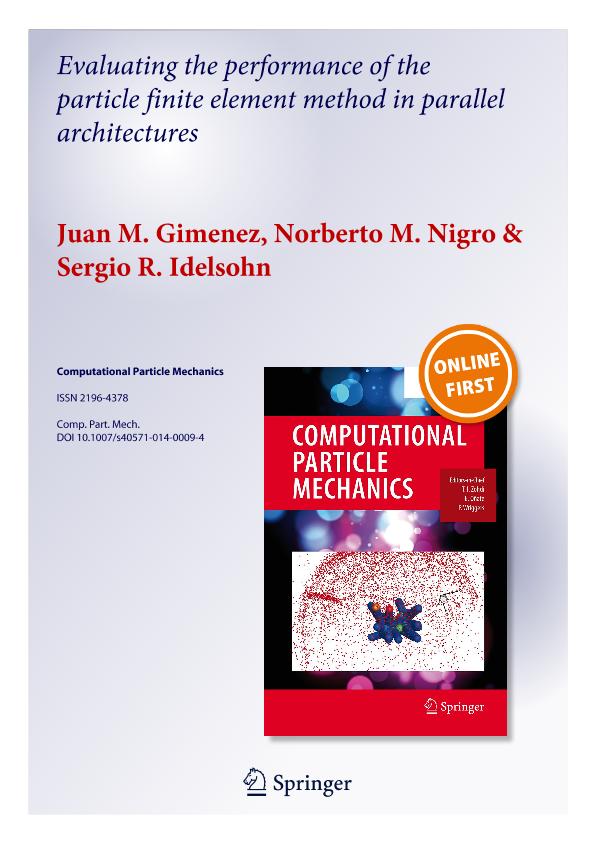Artículo
Evaluating the performance of the particle finite element method in parallel architectures
Fecha de publicación:
05/2014
Editorial:
Springer
Revista:
Computational Particle Mechanics
ISSN:
2196-4378
Idioma:
Inglés
Tipo de recurso:
Artículo publicado
Clasificación temática:
Resumen
This paper presents a high performance implementation for the particle-mesh based method called particle finite element method two (PFEM-2). It consists of a material derivative based formulation of the equations with a hybrid spatial discretization which uses an Eulerian mesh and Lagrangian particles. The main aim of PFEM-2 is to solve transport equations as fast as possible keeping some level of accuracy. The method was found to be competitive with classical Eulerian alternatives for these targets, even in their range of optimal application. To evaluate the goodness of the method with large simulations, it is imperative to use of parallel environments. Parallel strategies for Finite Element Method have been widely studied and many libraries can be used to solve Eulerian stages of PFEM-2. However, Lagrangian stages, such as streamline integration, must be developed considering the parallel strategy selected. The main drawback of PFEM-2 is the large amount of memory needed, which limits its application to large problems with only one computer. Therefore, a distributed-memory implementation is urgently needed. Unlike a shared-memory approach, using domain decomposition the memory is automatically isolated, thus avoiding race conditions; however new issues appear due to data distribution over the processes. Thus, a domain decomposition strategy for both particle and mesh is adopted, which minimizes the communication between processes. Finally, performance analysis running over multicore and multinode architectures are presented. The Courant–Friedrichs–Lewy number used influences the efficiency of the parallelization and, in some cases, a weighted partitioning can be used to improve the speed-up. However the total cputime for cases presented is lower than that obtained when using classical Eulerian strategies.
Archivos asociados
Licencia
Identificadores
Colecciones
Articulos(CIMEC)
Articulos de CENTRO DE INVESTIGACION DE METODOS COMPUTACIONALES
Articulos de CENTRO DE INVESTIGACION DE METODOS COMPUTACIONALES
Citación
Gimenez, Juan Marcelo; Nigro, Norberto Marcelo; Idelsohn, Sergio Rodolfo; Evaluating the performance of the particle finite element method in parallel architectures; Springer; Computational Particle Mechanics; 1; 1; 5-2014; 103-116
Compartir
Altmétricas




